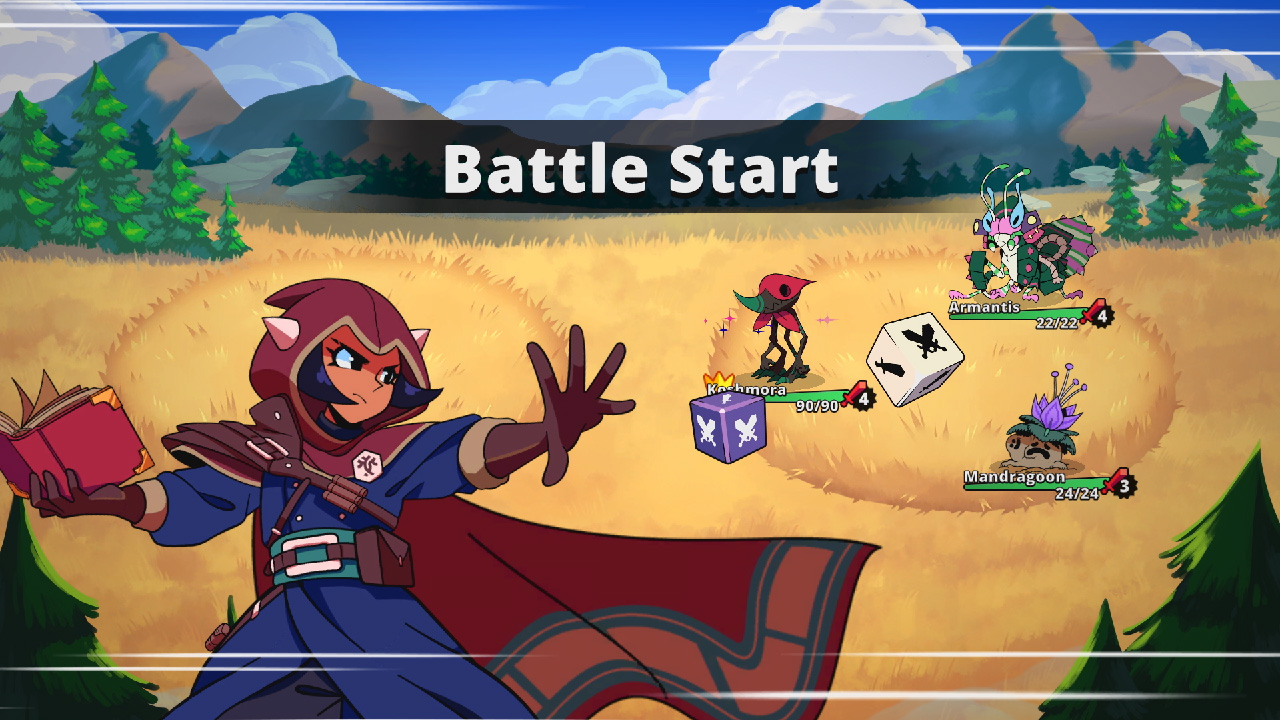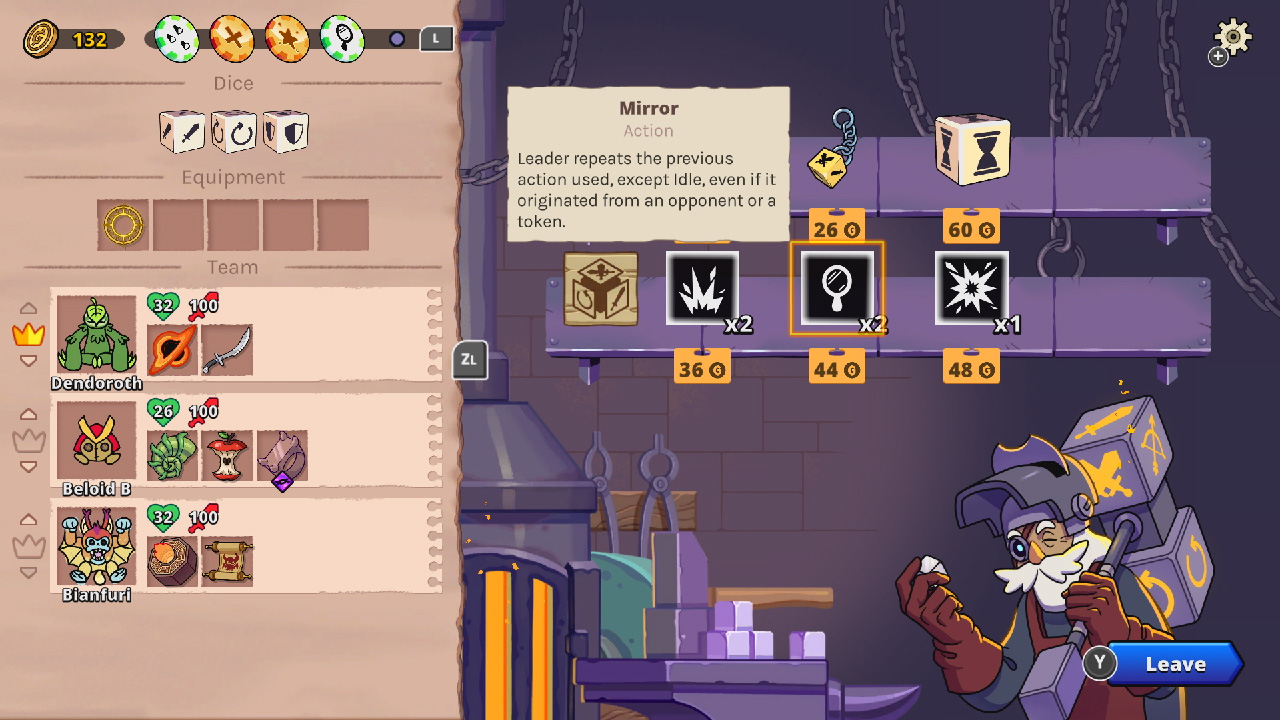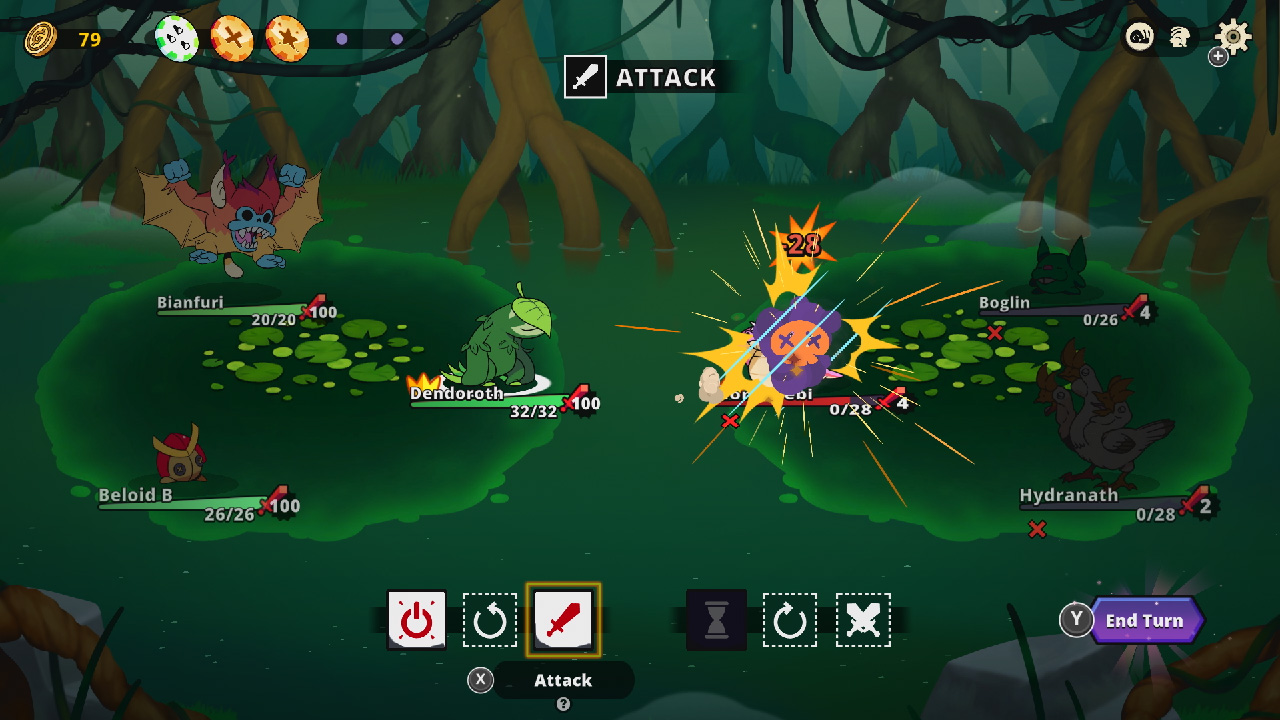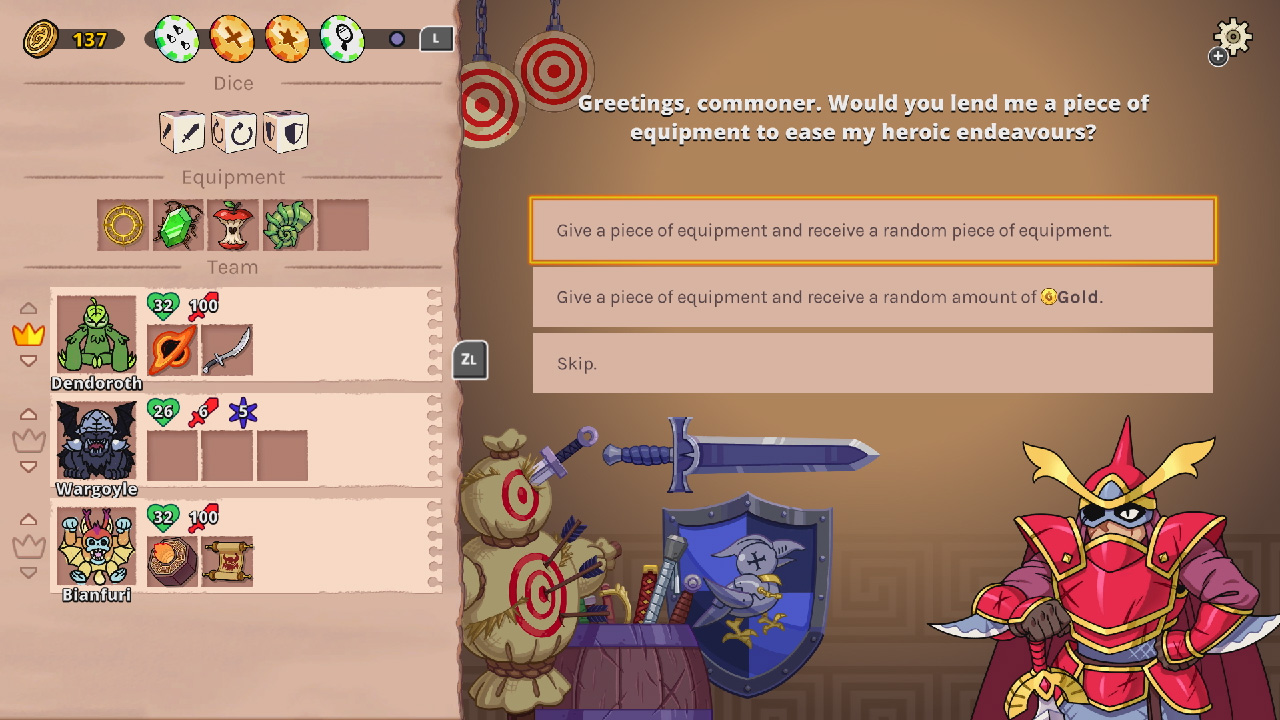Dicefolk is a roguelike strategic battling sport. You could have three critters, known as “chimera,” below your command. You make use of their varied fight advantages as you battle teams of randomly generated teams of 1 to 3 enemies. You battle these teams throughout a randomly-generated battlefield, culminating in a boss battle in your solution to the subsequent stage.
The central mechanism of fight is cube, as you may think. You and your enemies roll a set of three every (although you should purchase extra at varied retailers). The cube provide you with entry to instructions that allow you to assault or buff your chimera, or rotate their place in fight. A cube roll may additionally allow you to do nothing (“idle”), activate a particular energy, or re-roll a die.
The twist that Dicefolk offers you, the participant, is that you just’re not solely in charge of your individual die, however the enemy’s as effectively. For instance, let’s say that you’ve got one “guard” die out there (which can defend your chimera from assault), and your enemy has two cube: rotate place and assault. Your only option is clearly to protect your critter, however do you have to select to have the present enemy assault, or rotate to a weaker foe?
Chimera even have particular skills that come into play below numerous circumstances. Some chimera launch particular skills after they’re rotated into or out of place. Some gear will be activated by particular die rolls, permitting them to solid spells, assault foes, or reinforce allies.
Between battles, you’ll wander a randomly-generated map. Along with fight zones, you may encounter retailers the place you should purchase tools, modify your cube (and purchase new ones), and in addition encounter campsites and gardens the place you may relaxation and improve your chimeras’ skills.
Tactically, the problem of the sport is in selecting use the cube to win a battle; you’ll must shortly decide decrease the effectiveness of your foes. This may be difficult, as a result of though you may finish a spherical of battle with out utilizing your entire cube, you have to make use of all the enemy cube earlier than transferring on.
Strategically, the sport falls into the acquainted pitfall of roguelike video games. A lot of it’s random (by design) that it is probably not truly attainable to win a sport, so that you’ll should play a stage many times till you occur to luck into a mixture of chimera, enemies, gear, and rolls that mean you can make it to the tip. Then you definately do it once more. And once more. And once more.
I perceive the attraction of those video games from the angle of designers, because it saves them having to write down a narrative. For avid gamers who get pleasure from them, it offers them “replayability.”
Dicefolk is, thus, irritating by design. You may revisit retailers (the place you will need to spend cash received in battles), however when you cease by a campsite, grove, or different doubtlessly helpful website, these are one-and-dones. You by no means know which chimera you’re going to unlock in a stage, nor which tools might be out there to you. It’s your job to attempt to make it work. However it’s additionally attainable that it may not be attainable, when you see what I imply.
There may be, in fact, no payoff to profitable the sport, as a result of missing a narrative, there aren’t any stakes, aside from taking part in the subsequent zone, or unlocking new critters and tools to attempt it once more. The repetitive nature is the purpose.
That having been stated, Dicefolk was one of many extra enjoyable roguelikes I’ve performed. The design has a enjoyable, retro really feel. Every of the chimera is rendered in an ’80s Hasbro kind of method, and after they get hit by assaults there’s a brief, goofy response as if they’ll’t consider that is occurring to them.
Dicefolk efficiently tantalized me with the concept that this may be the time that I managed to tug a workforce collectively, after crushing me many times. And each time, after a victory, the commander of the workforce thrust her fist down with an emotional “sure!” I used to be proper there together with her.







